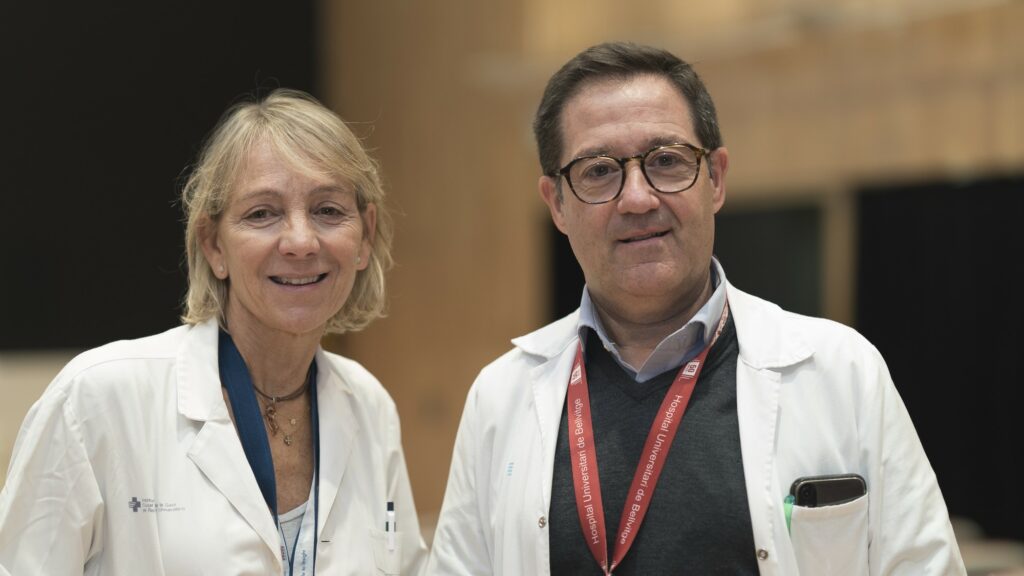A study by IDIBELL and Bellvitge University Hospital researchers, published in Kidney International, has marked the first step in the development of personalized and precision medicine in kidney transplantation. The research group has managed to demonstrate the good results of an algorithm that adjusts the doses of the immunosuppressant tacrolimus according to the characteristics of each person.
Many patients who receive a kidney transplant are treated with tacrolimus to prevent rejection. Currently, the initial dose of this drug is decided based only on the person’s body weight. If it needs to be adjusted afterwards, as is often the case, it is done only according to the doctor’s empirical experience, in accordance with the trial and error system.
This does not consider the fact that tacrolimus has different effects on each person because of many reasons, as the individual immunological risk, the risk of adverse effects or the quality of the donor kidney. Nor is the dose decided by genetic factors, although it is known that, depending on the person, sometimes a dose up to twice as large as another is needed to achieve the same effects.
These researchers studied the effectiveness of a validated dosing algorithm that includes age, proportion of red blood cells in the blood (hematocrit), and the presence of certain genetic markers, and also how these parameters modulate the drug behavior.
The study analyzed a total of 90 kidney transplant patients at Bellvitge Hospital between 2018 and 2020. Specifically, it compared the drug behavior between those who received a dosage according to the new algorithm and those who receive standard dosing based on body weight only.
The result was that, five days after transplantation, 55% of patients in the first group and only 21% of the second group had reached the minimum necessary concentration of tacrolimus. The first group needed 5 days while the control group required 10 days, on average, to reach the desired therapeutic level. Patients on individualized dosing also required fewer dose changes and showed less variability between them in terms of effective drug presence.
During the first few days after a kidney transplant, it is common for patients treated with tacrolimus to be too or too little exposed to this drug, which increases the risk of complications. Being able to reach the appropriate levels earlier can lead to a reduction in the risk of rejection and cases of drug toxicity.
As highlighted by Dr. Núria Lloberas, principal investigator in the nephrology and kidney transplant research group at IDIBELL and Bellvitge Hospital and main author of the study, “it would be desirable for this strategy we tested to be adopted in most kidney transplant units. It is a relatively easy and cheap approach that only requires a pharmacogenetic study prior to transplantation and the detection of a few clinical and analytical variables”.
In the same issue of the journal, an editorial comment praises the design and execution of the work and emphasizes that “it may represent the beginning of precision medicine in kidney transplantation”. According to the authors of the editorial article, the work done in Bellvitge marks the way forward, which must happen, according to them, by gradually adding new parameters to the algorithm that reinforce its role as a guide for a fully personalized therapy.
The Bellvitge Biomedical Research Institute (IDIBELL) is a biomedical research center created in 2004. It is participated by the Bellvitge University Hospital and the Viladecans Hospital of the Catalan Institute of Health, the Catalan Institute of Oncology, the University of Barcelona and the City Council of L’Hospitalet de Llobregat.
IDIBELL is a member of the Campus of International Excellence of the University of Barcelona HUBc and is part of the CERCA institution of the Generalitat de Catalunya. In 2009 it became one of the first five Spanish research centers accredited as a health research institute by the Carlos III Health Institute. In addition, it is part of the “HR Excellence in Research” program of the European Union and is a member of EATRIS and REGIC. Since 2018, IDIBELL has been an Accredited Center of the AECC Scientific Foundation (FCAECC).

